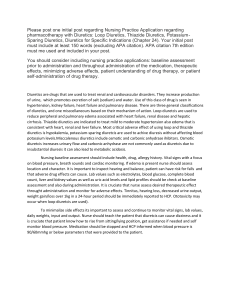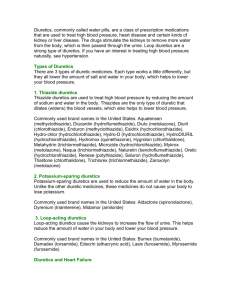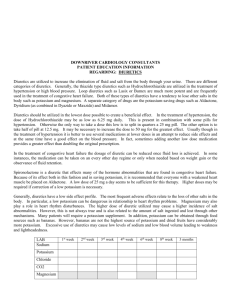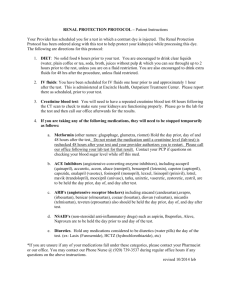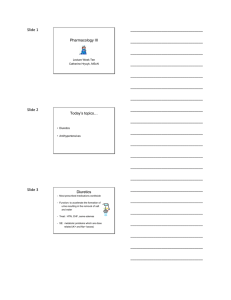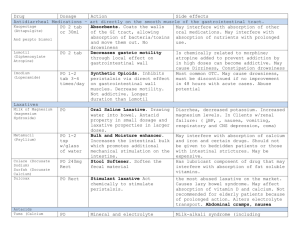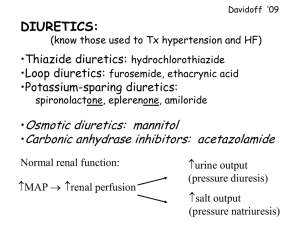Diuretic abuse
advertisement
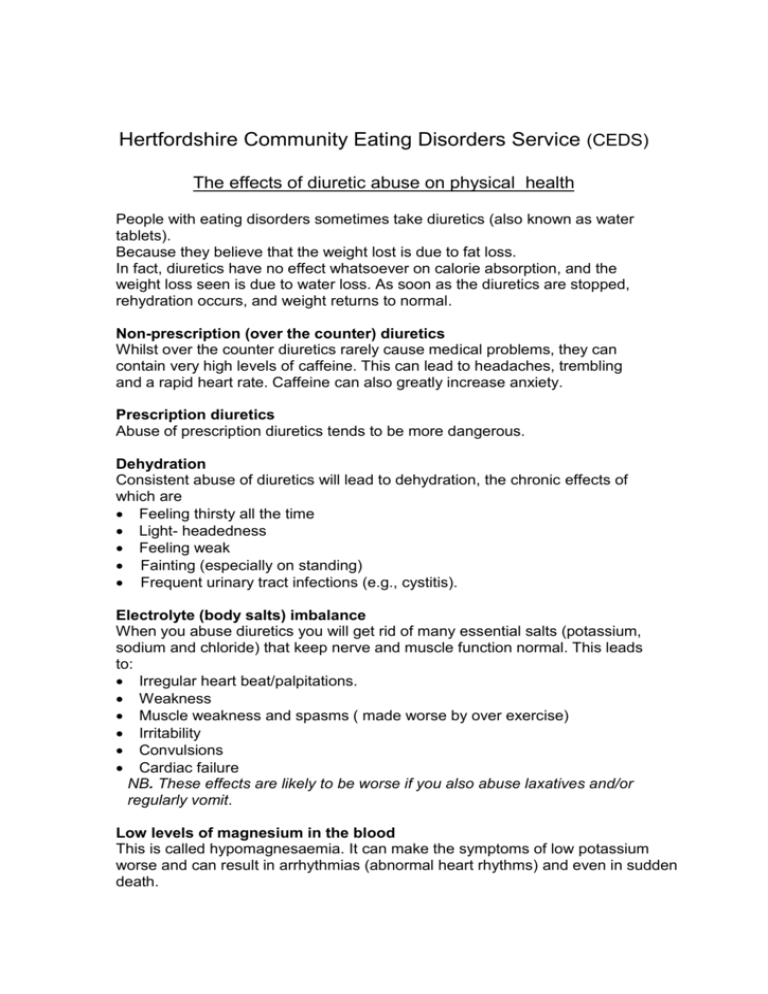
Hertfordshire Community Eating Disorders Service (CEDS) The effects of diuretic abuse on physical health People with eating disorders sometimes take diuretics (also known as water tablets). Because they believe that the weight lost is due to fat loss. In fact, diuretics have no effect whatsoever on calorie absorption, and the weight loss seen is due to water loss. As soon as the diuretics are stopped, rehydration occurs, and weight returns to normal. Non-prescription (over the counter) diuretics Whilst over the counter diuretics rarely cause medical problems, they can contain very high levels of caffeine. This can lead to headaches, trembling and a rapid heart rate. Caffeine can also greatly increase anxiety. Prescription diuretics Abuse of prescription diuretics tends to be more dangerous. Dehydration Consistent abuse of diuretics will lead to dehydration, the chronic effects of which are Feeling thirsty all the time Light- headedness Feeling weak Fainting (especially on standing) Frequent urinary tract infections (e.g., cystitis). Electrolyte (body salts) imbalance When you abuse diuretics you will get rid of many essential salts (potassium, sodium and chloride) that keep nerve and muscle function normal. This leads to: Irregular heart beat/palpitations. Weakness Muscle weakness and spasms ( made worse by over exercise) Irritability Convulsions Cardiac failure NB. These effects are likely to be worse if you also abuse laxatives and/or regularly vomit. Low levels of magnesium in the blood This is called hypomagnesaemia. It can make the symptoms of low potassium worse and can result in arrhythmias (abnormal heart rhythms) and even in sudden death. Urine problems Abuse of tablets that stimulate urine production will potentially cause problems with passing urine. Polyuria ( producing large amounts of urine) Blood in the urine (hematurial) Pyuria (pus in the urine). Kidney damage. Long term abuse of diuretics can eventually lead to kidney problems due to the effect of chronic dehydration, and also due to the toxic effect of the diuretics on the kidneys Other problems. Diuretics can cause several other problems, such as: Nausea and abdominal pain Constipation. Reference: “Cognitive Behavioural therapy for eating disorders: a comprehensive treatment guide” (2007) Waller et al. Page 405/406 Appendix 2B

